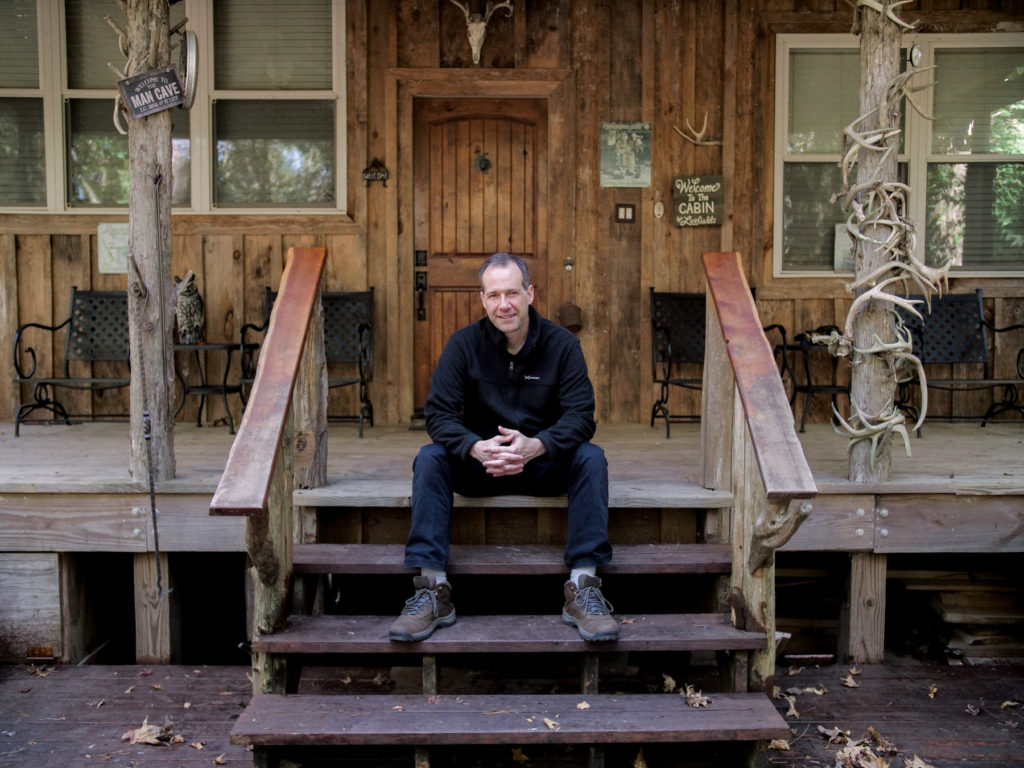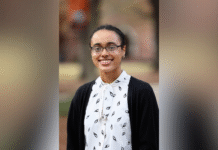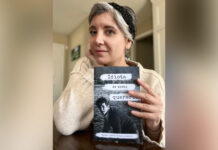Over the course of two weeks, a Mercer University professor camped in the Alaskan wilderness, summited a mountain, observed flora and fauna in their natural habitat, and composed a piece of original music about the experience.
Dr. Christopher Schmitz, professor of music theory and composition in the School of Music, was among eight composers who participated in the Composing in the Wilderness program, which took place in July 2022.
The composers spent five days camping in tents in Denali National Park, followed by three days in secluded cabins outside Fairbanks, where they wrote their new compositions. A group of professional musicians then performed the composers’ works as part of the Fairbanks Summer Arts Festival.
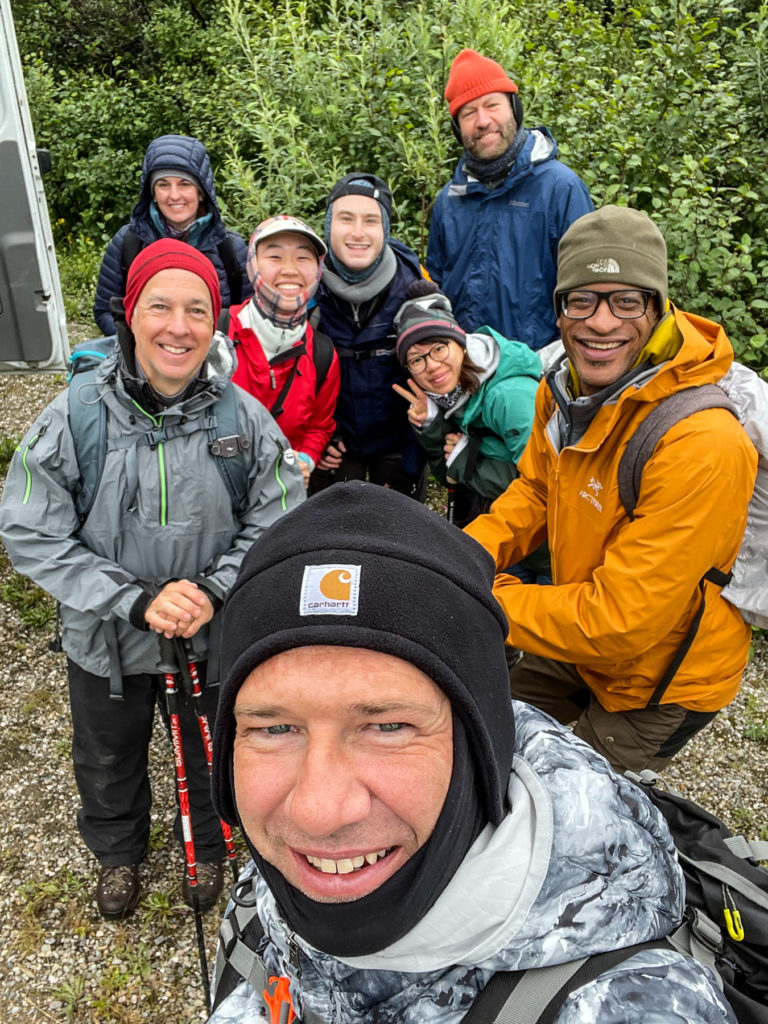
Dr. Schmitz’s piece, “Alpine Dance,” recalls the rhythmic sensations he experienced during his time exploring the wilderness. It features violin, flute, alto saxophone and percussion. As part of the experience, the ensemble was chosen at random by drawing out of hat.
“My initial thought about composing it was that I was going to write this thing about a grand epic view, and so it was going to be this very solemn kind of piece,” he said. “But that’s not the piece that came out when I started to compose. It was much more rhythmic than that.
“I was feeling the wildlife and the rhythms of the wind and the water, and so my piece turned into this very rhythmic thing.”
Scientists and naturalists accompanied the composers during their time camping in Denali. With no cellphone service or electricity, the group was completely disconnected from the rest of the world. Days were spent exploring, and nights were spent talking around a campfire.
One day, the group summited Cathedral Mountain. The trek involved traversing a narrow ledge with loose rocks, a scary but worthwhile experience for those who crossed it, Dr. Schmitz said.
“The spectacular part of it is that you get to the top of this sandy, kind of monochromatic face, and what opens up before you when you clear that crest on the top is this beautiful valley with all these colors, mountains in the distance, a river running through the middle, blues and greens,” he said.
He snapped some photos of the view with his phone, and the pictures would later serve as inspiration, along with images of a family of ptarmigan — a type of plump bird — and a group selfie. He also saw golden eagles and caribou and experienced scents he hadn’t smelled since growing up in Alaska 30 years ago.
The idea behind Composing in the Wilderness, which just completed its 10th year, was to give composers an experience that takes them out of their comfort zone, said adventure composer Stephen Lias, who founded the program.
“I like to see if we can get them a little bit dirty, a little bit scared, a little bit uncomfortable so that the experience that they have is so potent that it provides a high degree of inspiration for the music that they might write about it,” he said.
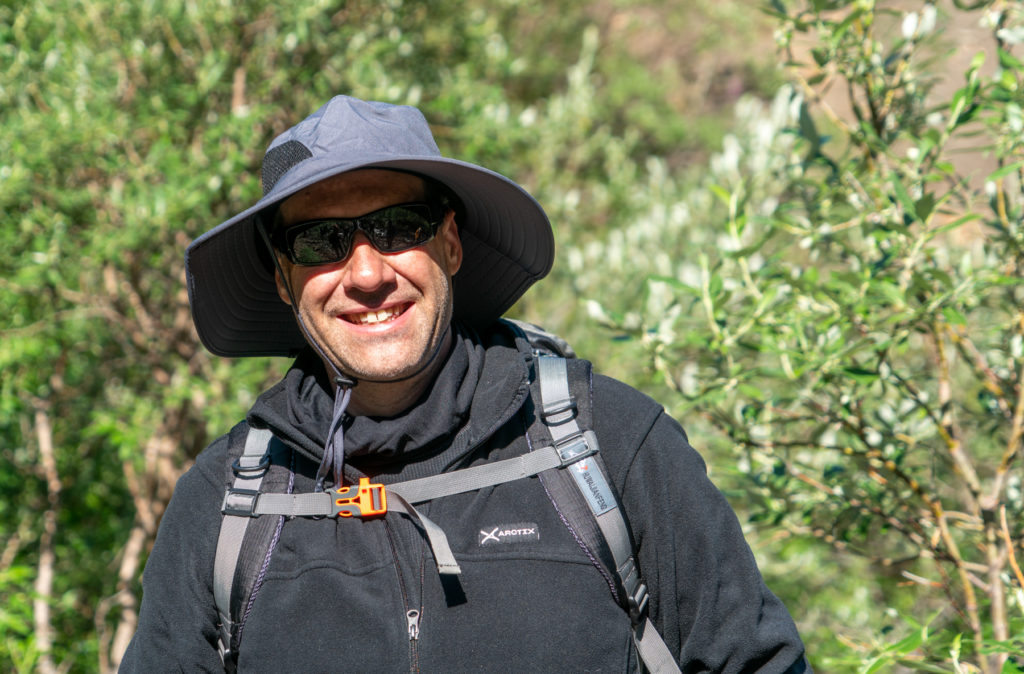
While some composers began jotting notes or writing right away, Dr. Schmitz chose to wait until the group retreated to the cabins near Fairbanks to start composing.
“I wanted to just take it in and not feel burdened by having to compose when I was out there, so I just experienced everything, and I took a lot of pictures,” he said. “And then after we finished in the wilderness and we moved to our remote site where we were doing the intensive composing, I went back and I looked at my pictures, and I kind of reflected on the whole thing.
“And that’s when I came up with my music.”
He started by sketching on paper abstract shapes that represented the intensity of the piece over time. That led to hand writing pages of music notes, which he moved around within the piece and assigned to instruments. Finally, he typed the notes into his laptop and printed out the published music.
All of this happened within three days. Typically, a piece of similar length and instrumentation to “Alpine Dance” would take a couple of months, he said.
The quick turnaround is intentional, Lias said.
“A lot of the time that artists spend working on stuff is really self-indulgent, agonizing over little details. This note or that note. This rhythm or that rhythm. This chord or that chord,” he said. “And we agonize over it for a long time, and in reality, most of the time if we make the decision quickly, we still make a really good choice.”
With new music in hand, the composers went to Fairbanks where musicians quickly learned the pieces, received feedback from the composers and performed them in concert.
Dr. Schmitz said the experience allowed him to activate his creativity in a new way. Scientific research supports that, Lias said.
“The brain space that we go into when we are off the grid, when we put our devices away, when we’re out hiking on a trail or sitting in a meadow, we go into the same sort of creative brain space that children are in when they play with their toys or in a sandbox,” Lias said. “It’s not focused on accomplishing or checking things off the list. It’s focused on experience and creativity.
“And so, part of the reason why people love going to national parks and having these kind of adventures is because it puts us into that refreshing, rejuvenating headspace. We have found that invariably that sparks people’s creativity in ways they can’t get at home.”
